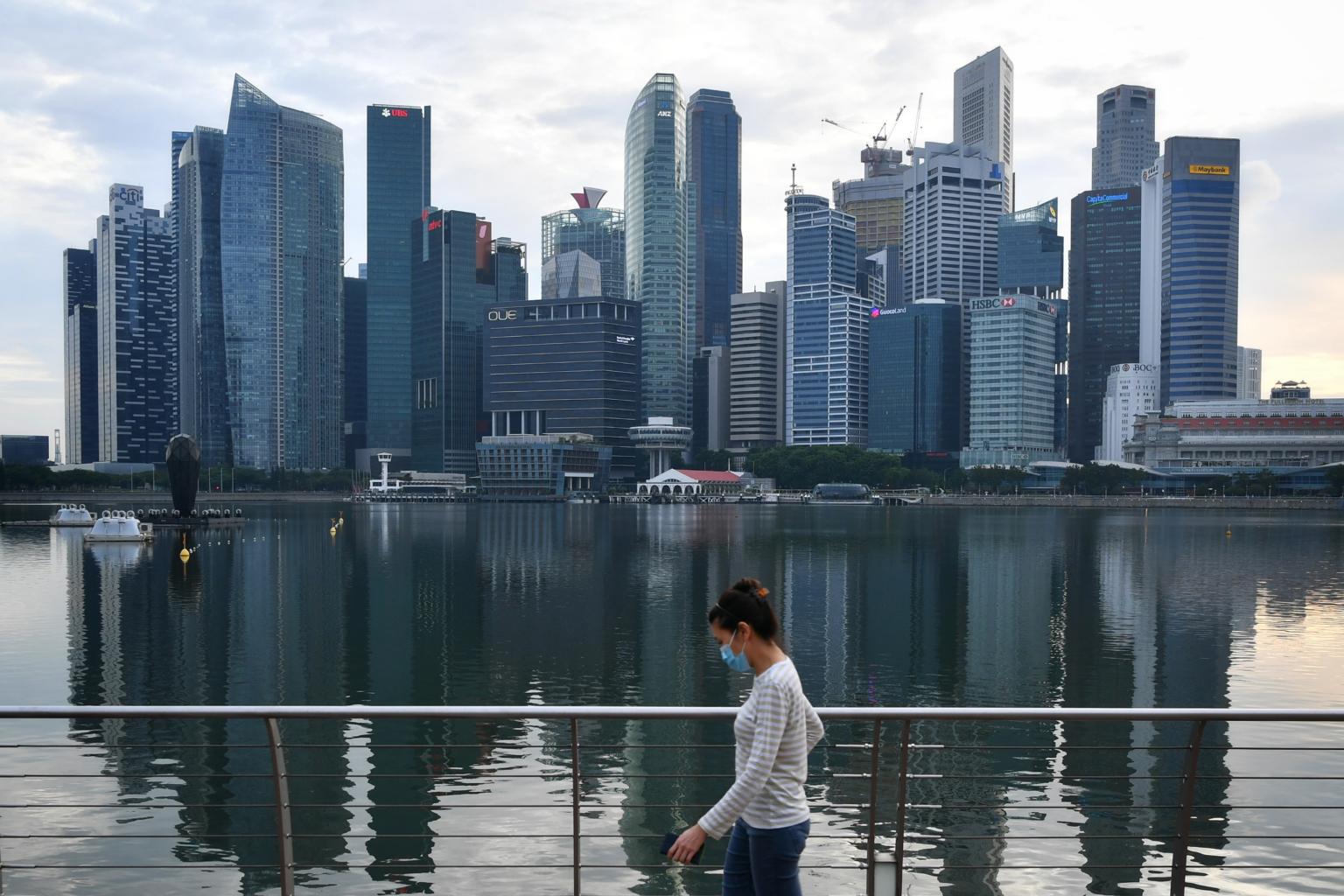Singapore banks' upcoming dividends may be cut amid capital review: Analyst
Sign up now: Get ST's newsletters delivered to your inbox

The global pandemic will weigh on tourism and retail businesses results.
PHOTO: ST FILE
Follow topic:
SINGAPORE (THE BUSINESS TIMES) - Dividend cuts by Singapore banks may happen "as early as" the upcoming payout to be announced in the second quarter, with the regulator reviewing banks' capital plans amid prolonged economic uncertainty, said DBS Group Research in a report this week.
The Monetary Authority of Singapore (MAS) said last Thursday it is in close discussions with banks on their capital management ahead, which would include conversations around - though not limited to - restricting dividend payouts. Banks "should start early and not wait until the capital position starts looking weaker", MAS managing director Ravi Menon had told reporters.
Singapore banks have generally kept their dividend options open, said DBS analyst Lim Rui Wen. Currently, DBS pays an absolute dividend per share of 33 cents per quarter. UOB has a dividend payout ratio policy of about 50 per cent of earnings, subject to certain conditions, while OCBC has committed to a sustainable dividend "in line with its long-term growth prospects".
Should the absolute dividend payout for DBS and OCBC be maintained in FY2020, their dividend payout ratio would be around 65 to 70 per cent which is "relatively high", said Ms Lim. Meanwhile, while a $1.10 base dividend per share provides a "key support" for UOB, a dividend cut is possible due to reduced FY2020 earnings, she noted. In FY2019, UOB paid a special dividend of $0.20 per share on top of the base dividend.
Overall, given the steep earnings decline expected across banks in FY2020, banks may err on the side of caution and voluntarily cut back on dividends and shore up capital, she noted.
The option of offering scrip dividend with discount as a capital management tool was also cited as a possibility. For example, OCBC's historical scrip dividend offers a 10 per cent discount.
Ms Lim said she is also expecting Singapore banks to register a record quarter-on-quarter decline in net interest margin (NIM) in Q2 as benchmark rates collapse, which could ultimately weigh on the upcoming dividend payout.
"There are downside risks to earnings arising from lower NIM if Singapore banks' NIMs break below post-GFC (global financial crisis) lows. This could lead to lower dividends."
She has projected for Q2 NIM to fall by 16-22 basis points (bps) quarter-on-quarter, compared with a change of 0-5 bps in Q1. Across the banks, quarterly NIMs are expected to be near their all-time post-global financial crisis low. While Q2 should see the bulk of the repricing effect, there could be a spillover effect into Q3, said Ms Lim. Every 10bps decline in NIM is estimated to have a 6 to 8 per cent impact on net profit.
On top of having the global pandemic on tourism and retail businesses weigh on results, banks' earnings could also be hurt by larger-than-expected non-performing loans (NPLs) in Q2 from generic sectors or as combined with commodities-related exposure, said Ms Lim.
This is further compounded by unemployment arising from a deep recession that could pose risks to mortgages and unsecuredconsumer loans, among others. Based on DBS's analysis, every 10 bps uptick in credit costs may impact sector earnings by around 7-8 per cent.
Overall, DBS Group Research is watchful for the second half of FY2020 as government relief measures begin to taper off, which include rental rebates, wage subsidies and loan moratoria. This may lead to the winding up of some businesses should their underlying demand fail to recover during the Phase 2 period, said Ms Lim.
Consequently, defaults arising from at-risk loans will see banks chalking up more bad debt. OCBC and UOB's NPL ratio for FY2020 is expected to come in at 2 per cent and 1.8 per cent respectively, compared with 1.5 per cent in FY2019.
CGS-CIMB told BT on Friday that Singapore banks' upcoming dividend payout is less likely to be impacted by deliberations by the regulator on banks' capital management plans. Instead, their dividend payout in the second quarter will depend more on their earnings impact from the current operating environment amid pre-emptive provisioning and NIM headwinds.
All three banks will report their Q2 earnings in the first week of August.
Shares of the three banks traded lower Wednesday afternoon. As at 1.42pm, shares of DBS lost 24 cents to $21.16, shares of OCBC were down seven cents to $9.14, and shares of UOB fell 19 cents to $20.51.

